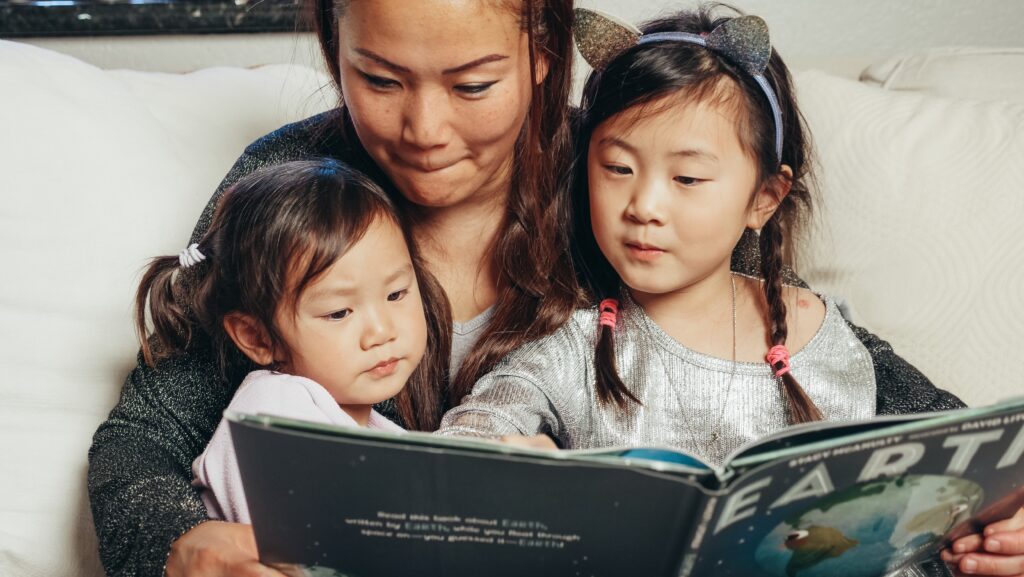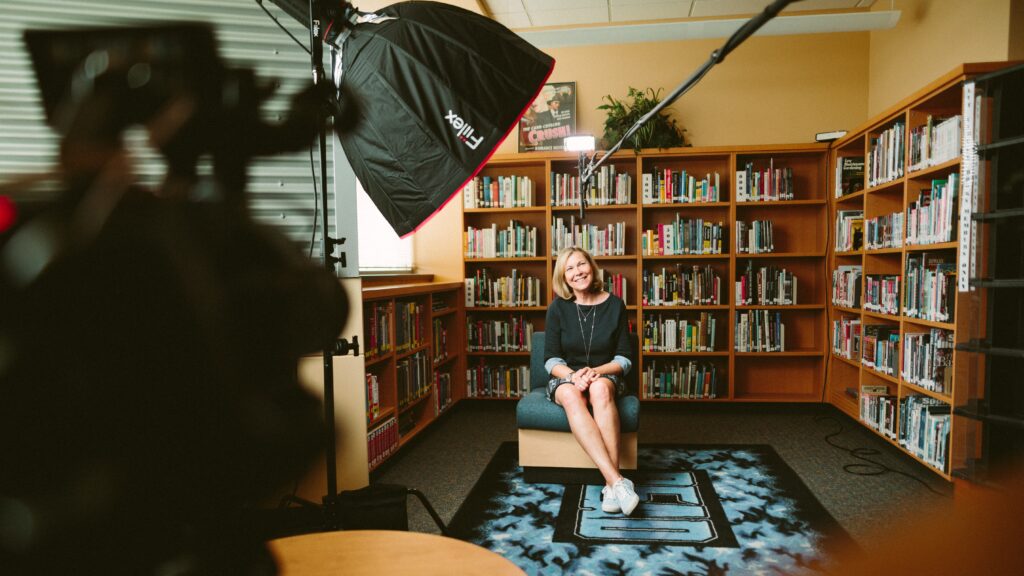What are the mistakes that most often trip up new and aspiring children’s authors?
I’ve written more than 50 children’s books, and edited a LOT more than that. In that time, I’ve made my fair share of mistakes, and seen other authors do the same. So I want to help you out with a few shortcuts to the big lessons that I’ve learned, so you don’t have to figure them out the long, slow way like I did! If you want to know what not to do when writing a children’s book, read on – these are 5 of the biggest mistakes to avoid.
1. Ignoring non-fiction

When most people imagine writing a children’s book, their mind goes straight to fiction. Whether that’s picture books or longer chapter books, made-up stories are what aspiring children’s authors typically focus on. Now don’t get me wrong, I have absolutely nothing against children’s fiction books. I LOVE children’s fiction books! But I also know first-hand how amazing it is to write non-fiction, and how much more creative you can be with than most people ever realise.
All of my books are non-fiction, and I specialise in writing and editing creative non-fiction. I’ve written about art, science, activism, technology and all sorts of exciting things that have happened around the world and through the ages. I have invented hosts of characters and made them talk (and sometimes fight!) with each other. I’ve found narrative voices that have a personality all of their own, and listened as they tell me how they see the world. I have created stories from real-life events and brought imagined scenes to life on the page. I’ve asked children to question everything and given them the practical nudges to get started on their own path.
Creative non-fiction
All this isn’t because I’m particularly special, or doing things that no one else can do. Not at all. I’m just writing creative non-fiction. All of that wonder, creativity and excitement – all that possibility of exploring the world and the far reaches of your imagination – is baked right into it.
Writing creative non-fiction sometimes feels like a magical secret, but one that I want other writers to know about! Do you already have an idea for a book? Could you tell that story while also helping children to discover the wonders of the real world around them? You might find, as I do, that grounding your ideas in reality sharpens them into something far more original, creative and interesting.
There are also some pretty big practical benefits to writing children’s non-fiction. For one, it can be a more accessible way to get published. If you want to learn more about creative non-fiction, take a look at this blog post.
2. Assuming it’s always going to be really good fun

One of the best pieces of advice I’ve ever heard is that, when you’re following your dreams, don’t expect it to always feel good. Just because it’s something you want to do, and love doing at times, don’t imagine that you’ll feel blissed out, or even remotely satisfied, the majority of the time.
The more something matters to you, the more draining, frustrating and disappointing it can be when it’s not going as well as you’d hoped. The trick is to remember that this doesn’t mean there’s anything wrong. It doesn’t mean that you’re not a ‘real’ writer, or that you’re kidding yourself. Or that you’ve lost the magical spark you remember having on a really good writing day. It’s just part of the process. I promise.
ALL authors HAVE BAD DAYS
It’s also something that even experienced authors still deal with, all the time. I have a weekly accountability/solidarity chat with a brilliant, award-winning children’s author, and you wouldn’t believe how wildly our conversations lurch from excitement to despondency. Second-guessing ourselves, feeling silly trying to explain our ideas to others, wincing at feedback, sometimes just wanting to do ANYTHING other than sit down and write. We both love writing, and both feel incredibly lucky to do it for a job. It’s just that writing isn’t easy, and ups and downs kind of come with the territory.
So when you find yourself despairing over your work-in-progress, not wanting to carry on because it feels hard and boring and like you’re getting nowhere good, go and find your favourite kids’ book on the shelf. As you flick through it, picture the author hard at work writing it – on a bad day.
Picture them sighing and huffing and throwing their hands up in frustration as they try and fail to make any progress, maybe with a sentence that you particularly love. I guarantee there will have been scenes like this as that book got written! But they got there in the end, by refusing to give up when things got hard. And so will you.
3. Focusing too much on publishing, not enough on writing

Over the years, I’ve had a fair few people ask me for advice on getting their children’s book published. I’m happy to share what I know, but I do always start with one question: Have you written any of the book yet?
Every single time, the answer has been: No. They’ve got the idea in their head, maybe jotted down somewhere, but beyond that they haven’t written a word. And that’s fine. It’s good to think about where you’re heading, and to make sure that you’re setting out on the right path. But it’s also a LOT of pressure to be putting on yourself at such an early stage.
One of the great things about non-fiction books is that, unless it’s a picture book, you don’t typically have to write the whole thing before finding out whether any agent or publisher wants it. A proposal and a couple of sample double-page spreads will often be enough to sell a book. But even with this, you want to give your book some breathing space. Some room to become something wonderful, before you worry about convincing other people of exactly how wonderful it is.
Let your mind play
Play around with your book idea. Follow your research and your imagination down all sorts of mesmerising rabbit holes. Scribble down the bits of text that pop into your head. Try putting together a contents list full of all the amazing things you want to share with the children who read your book. Have a go at writing a couple of the pages that you’re most excited about. Don’t worry so much about how to get published that you forget to pay enough attention to the thing that matters most: your book.
This advice is even more important if you’re writing picture books (creative non-fiction or otherwise), or fiction chapter books. Because you really do need to finish writing before approaching an agent or publisher. They will usually only want the first three chapters or so at first, but if they like it they’ll ask to read the whole thing. And when that happens, you don’t want to then leave them hanging for months while you actually write the rest!
4. Focusing too much on writing, not enough on publishing

Ooh, I’m being a bit mean, aren’t I? Didn’t I JUST say to keep your mind on the writing first, and worry about getting published later?! Yes, and I still stand by that. But if you can shift your mindset from an anxious ‘How can I get published?’ to a curious ‘How can I learn more about publishing?’ it can be extremely beneficial for you and your book.
Many people who want to write children’s books are inspired to do so because they loved reading as a child. It’s certainly true in my case! But something I see a lot is new and aspiring authors who still use those childhood favourites as their only points of reference for writing a children’s book. There’s absolutely nothing wrong with keeping those books close to your heart. But obviously things do move on over the years, and children’s publishing is no different.
The truth is that a lot of the books we loved as children simply wouldn’t be published today. Reading my favourite childhood classics to my daughter, I notice basic things that just wouldn’t fly in contemporary children’s publishing. Like huge chunks of text on the page, or stories that bumble along in a sweet, quiet way but have no discernible structure or tension.
Time for a bookshop visit
That’s why I always say that one of the best things an aspiring children’s author can do is regularly visit a good bookshop – preferably an independent one that specialises in children’s books (like this one) – and look around at the phenomenal selection of children’s books available today. Not the David Walliamses and other half-baked celebrity vehicles that dominate supermarkets and many high-street stores. Most of those titles rely on sheer force of marketing rather than their own innate brilliance. So unless you’re already a celeb, there’s not much to learn there!
Instead, ask bookshop staff to recommend their favourite recently published books (this is where visiting an indie children’s bookshop pays off). Peruse the shelves until you find one or two that particularly capture your imagination, and are aimed at roughly the same age group that you want to write for. Buy them, take them home and pick them apart. Look at basic things like how many words to a page, complex things like how to handle difficult subjects age-appropriately, and everything in between.
Then keep going! Find recently published (in the last five years or so) children’s books in the library and bookshop, and in my monthly newsletter. Pick those apart, too. When the time comes for thinking about submitting your book, look up which agents and publishers are involved with the authors and books you feel a strong connection to, and start there.
5. Trying to go it alone

Writing children’s books can be absolutely magical, and so so rewarding, but it also asks a lot of you. The sad reality is that many people with a fabulous idea, or even part or all of a really promising book, end up abandoning it and stopping writing for children altogether. So how can you make sure that doesn’t happen to you?
In a word: support. When you’re feeling lost or overwhelmed, losing faith in your idea or your ability to write it and get it published, it can sometimes be too much to push through alone. If you have the support of your friends and family, that can make a big difference. But sometimes it really matters to have support and advice from someone who is a fellow children’s writer.
You can find Facebook groups for new and aspiring authors, join real-world (or virtual) writers’ groups in your local area, or perhaps ask around for a fellow children’s writer to be your accountability partner. You can see that other people struggle with similar challenges to the ones you’re facing, and that it doesn’t mean you’re not cut out to be a writer. Not at all.
Author coaching
You can also choose to invest in yourself and your writing by working with an author coach. Like me! I offer three different 1-to-1 author coaching packages that give you the opportunity to ask questions, get expert feedback, and be supported by someone who understands what you’re going through and can offer friendly advice from the other side.
Here’s what one of my coaching clients has to say about our time together:
I LOVED working with Alice! If you’re thinking about it, do it! It will be one of the best ways you can invest in yourself and your author career. She’ll help you realise everything that you already have to offer, and you’ll learn how to put that to use in all of the different ways necessary to forge a successful writing career – whatever success looks like for you. You’ll also get to meet one of the most wonderful humans around, which is always a bonus!
Loll Kirby, book blogger and children’s author
If that sounds like the kind of thing you need, you can click the button below to learn more:
I wish you all the very best with writing your children’s book!




